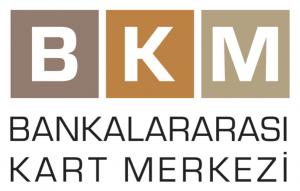Turkish Payment-Card Group Readies Multibank NFC Trial

Turkish payment card organization, BKM, intends to launch its long-planned multibank NFC trial as early as this month, the group has told NFC Times.
The organization, which counts nearly 30 banks as members, will launch the first phase of the delayed trial by this summer, probably in July, Feza Tarhan, BKM’s director of business development and rules and regulations, told NFC Times.
While phase one will be more modest than originally planned, it is still an ambitious project: Six banks are to scheduled to take part, using contactless applications from two card schemes, Visa and MasterCard Worldwide, though mainly payWave from Visa. The applications will be stored on either SIM cards or embedded secure chips in the two NFC phones models planned for the trial.
Challenges–both technical and political–in Turkey’s competitive payment market has caused BKM to delay the launch at least a couple of times and to scale back the size of the first phase. Original plans had called for the trial to launch in January 2009, also with multiple banks, but including a couple of larger financial institutions. And at least two mobile operators were going to participate.
But only Avea, Turkey’s third largest telco, will be onboard for the trial’s first phase, which will involve just 200 users, who will be issued older-model NFC phones. About half of the users will be employees of project organizers.
Still, in terms of scope, BKM’s trial will be topped only by a pair of mobile-payment pilots launched in late 2007 by French mobile operators and banks in the cities of Strasbourg and Caen. The French projects had more telcos and handset models involved. But the Turkish trial will cover a greater geographic area, with users able to tap their phones to pay at about 32,000 point-of-sale terminals in Turkey that take Visa payWave and MasterCard PayPass–though the terminals are concentrated in Istanbul.
Tarhan said plans call for increasing the size of the project dramatically after the first phase–to up to 15,000 users, tapping full NFC phones or such NFC bridge technologies as contactless microSD cards and SIM cards attached to flexible antennas that wrap around phone batteries. More telcos and issuers would be brought in, as well.
“The project is planned to expand by involving all the mobile operators, banks and other service providers such as transport operators in the upcoming phases,” Tarhan told NFC Times.
It was unclear when the latter phases of the project would begin, however.
In the meantime, BKM, which has ambitions of becoming a national trusted service manager and to expand its TSM services abroad, has been under increasing pressure to launch the trial’s first phase.
Avea along with one of Turkey’s largest banks Garanti announced in May they would commercially roll out contactless-mobile payment, using SIMs and flexible antennas. The service is targeted for launch this month. That announcement prompted Turkey’s No. 1 telco, Turkcell, to disclose its own plans for a commercial launch of NFC or related technology by the end of 2010. Neither Garanti nor Turkcell is involved in the first phase of BKM's trial.
Among the problems that have held up the BKM trial has been waiting for specifications for the payment applications from the card schemes. These payment applications have to be integrated with the back office of the multiple banks involved and with BKM’s system and to run on different secure elements. BKM clears and settles domestic credit and debit transactions as well as setting rules and regulations for Turkey’s bank card market, one of Europe’s largest.
BKM has hired Singapore-based Cassis International to provide the TSM platform and related technology. Cassis plays a similar behind-the-scenes TSM role in South Korea, which has rolled out dual-interface SIM cards for payment and ticketing. The company also serves as TSM for Malaysia’s small commercial NFC payment and ticketing service launched last year.
BKM from the beginning has pledged to support more then one type of secure element for its trial, and it is following through on that pledge with the handsets it's using for the trial's first phase. The Nokia 6212 phones come with an embedded chip to store secure applications, and the Sagem my700X supports the standard single-wire protocol connection, enabling the SIM to serve as the secure element.
Both handsets, though not stylish, have been used in a number of NFC trials and have been among the few models available for trial organizers. One or both are probably out of production so BKM is likely using supplies of the phones it had purchased earlier.
A successful trial could add momentum to Turkey’s contactless-payment rollout, one of the largest in Europe. Nearly a dozen issuers, led by Garanti, have together issued more than 2.2 million contactless cards since 2006. Some of the contactless card-issuing banks are participating in the BKM trial, including Isbank and DenizBank.












